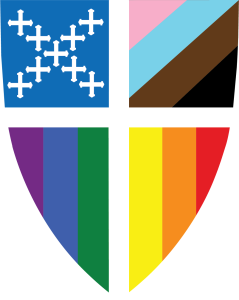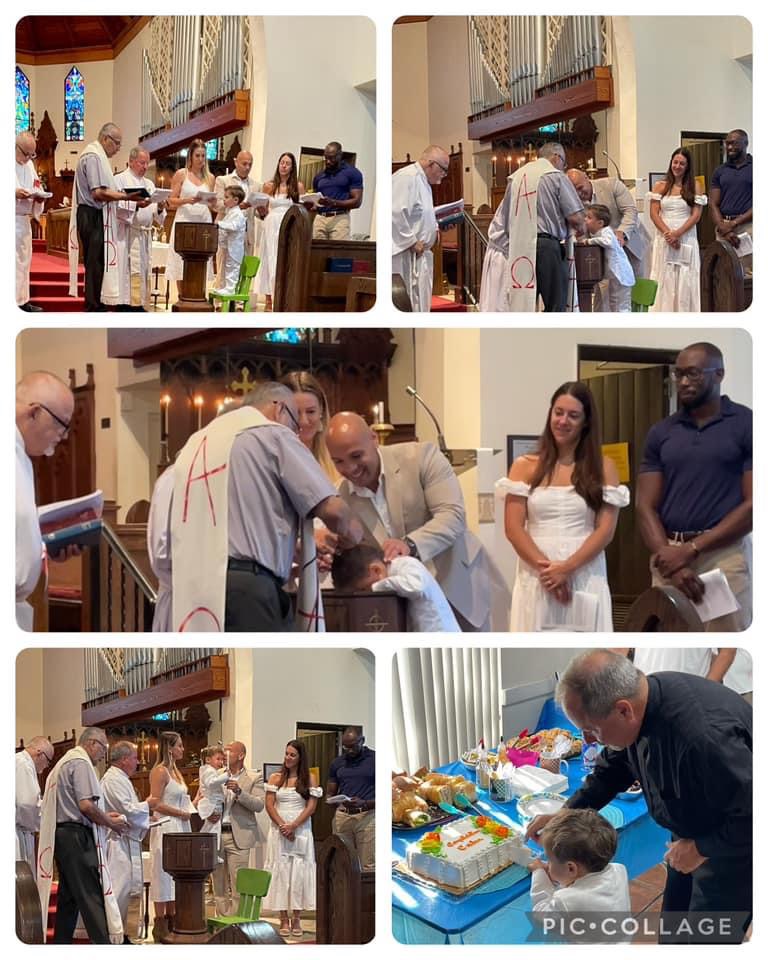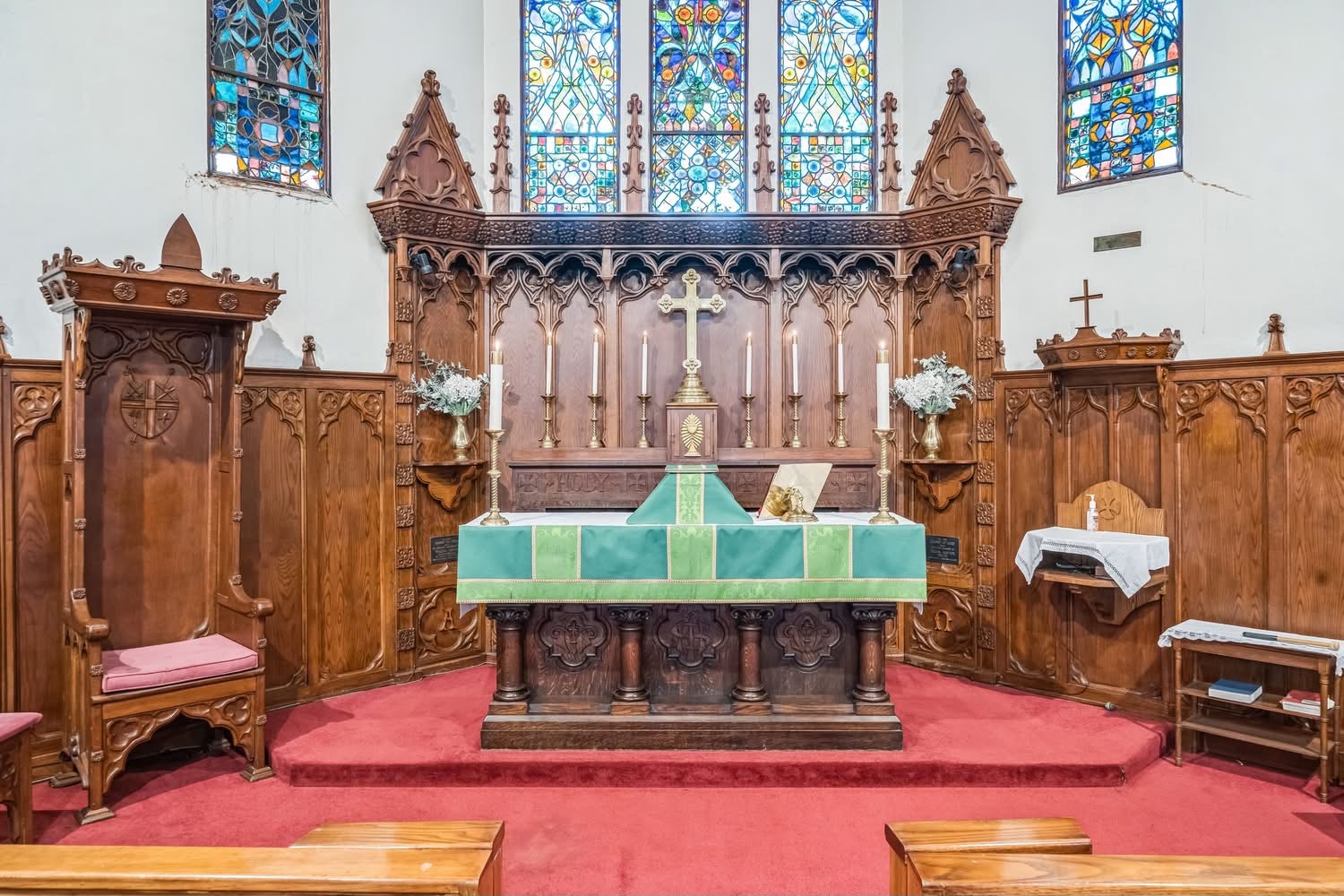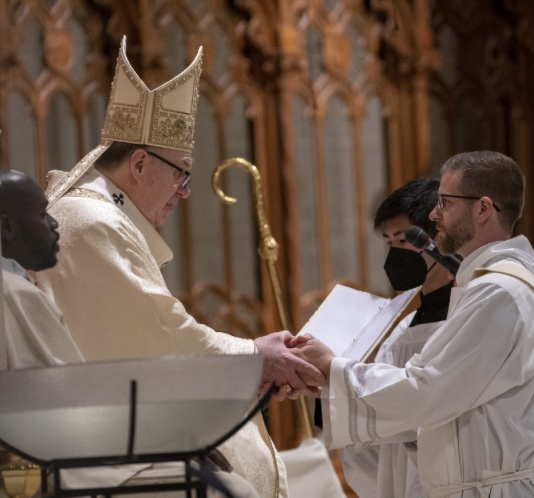
The mission of The Episcopal Church, as stated in the Book of Common Prayer’s catechism, is “to restore all people to unity with God and each other in Christ.” In step with that mission, we follow Jesus into loving, liberating, and life-giving relationships with God, with each other, and with the earth.
With that belief, we welcome those who are searching, those who are question and those simply seeking to be loved for who they are and beloved for what they are, children of God.
Our Anglican tradition recognizes sacraments as “outward and visible signs of inward and spiritual grace.” (The Book of Common Prayer, p. 857) Holy Baptism and the Eucharist (or Holy Communion) are the two great sacraments given by Christ to his Church.
In the case of Baptism, the outward and visible sign is water, in which the person is baptized in the Name of the Father, and of the Son, and of the Holy Spirit; the inward and spiritual grace is union with Christ in his death and resurrection, birth into God’s family the Church, forgiveness of sins, and new life in the Holy Spirit. In the case of the Eucharist, the outward and visible sign is bread and wine, given and received according to Christ’s command. The inward and spiritual grace is the Body and Blood of Christ given to his people, and received by faith.
In addition to these two, there are other spiritual markers in our journey of faith that can serve as means of grace.

HOLY BAPTISM
Holy Baptism is full initiation by water and the Holy Spirit into Christ's Body the Church. We believe the bond which God establishes in Baptism is indissoluble. The New Testament offers scriptural precedent for the practice of Baptism. Just as Jesus was baptized with water by John the Baptist, we include people in the community of faith by baptizing them with water. Following a series of questions, responses, and prayers, the priest pours water on the candidate. The sign of the cross may be made on the candidate’s forehead with blessed oil. The Episcopal Church baptizes individuals of all ages.
Because of the nature of the promises made during Baptism, it is important that baptismal candidates (and/or their families) have a relationship with Saint John's and intends to continue to participate in the fullness of Christian life.
For more information and to arrange for preparation for Baptism, please contact the office at (954) 921-3721

HOLY EUCHARIST
The Holy Eucharist is the sacrament of Christ's body and blood commanded by him for the continual remembrance of his life, death, and resurrection, until his coming again. The Holy Eucharist, also called "the Mass", "Holy Communion", "the Divine Liturgy", "the Great Offering", or the "Lord's Supper", is celebrated each Sunday. By it, we receive forgiveness of sins, strengthening of our union with Christ and one another, and the foretaste of the heavenly banquet which is our nourishment in eternal life.

CONFIRMATION
Confirmation is the rite in which an individual expresses a mature commitment to Christ, and receive strength from the Holy Spirit through prayer and the laying on of hands by a bishop. In the Episcopal Church, those confirmed must be baptized, instructed in the faith, and stand ready to affirm their confession of Jesus Christ as Savior and Lord.

ORDINATION
Ordination is the rite in which God gives authority and the grace of the Holy Spirit to those being made bishops, priests, and deacons, through prayer and the laying on of hands by bishops.

HOLY MATRIMONY
Holy Matrimony is Christian marriage, a solemn and public covenant between two persons in the presence of God. St. John's is happy to celebrate and solemnize the marriages of same-gender couples, using rites authorized by The General Convention of The Episcopal Church. In the Episcopal Church, it is required that at least one of the persons be a baptized Christian, that the ceremony be attested by at least two witnesses, and that the marriage conforms to the laws of the State and the canons of the national Church. For more information on the celebration of Holy Matrimony at St. John's, please call the church office at (954) 921-3721.

RECONCILIATION OF A PENITENT
Reconciliation of a Penitent, or Penance, is the rite in which those who repent of their sins may confess them to God in the presence of a priest, and receive the assurance of pardon and the grace of absolution. Our priest is always available to receive confession upon request.

Unction
Unction is the rite of anointing the sick with oil, or the laying on of hands, by which God's grace is given for the healing of spirit, mind, and body. Unction is administered upon request.
WHAT WE BELIEVE
As Episcopalians, we believe in and follow the teachings of Jesus Christ, whose life, death, and resurrection saved the world.
We believe that God loves you – no exceptions.
The Episcopal Church embraces a legacy of inclusion, aspiring to tell and exemplify God’s love for every human being; people of all genders and sexual orientations serve as bishops, priests, and deacons in our church. Laypeople and clergy work together in leadership and governance.
Core to our Beliefs:
Book of Common Prayer
“It is a most invaluable part of that blessed ‘liberty wherewith Christ hath made us free,’ that in his worship different forms and usages may without offense be allowed, provided the substance of the Faith be kept entire” (Book of Common Prayer, p. 9).
The Book of Common Prayer is a treasure chest full of devotional and teaching resources for individuals and congregations, but it is also the primary symbol of our unity. We, who are many and diverse, come together in Christ through our worship, our common prayer.
The Bible
“Blessed Lord, who caused all holy Scriptures to be written for our learning: Grant us so to hear them, read, mark, learn, and inwardly digest them” (Book of Common Prayer, p. 236).
The Bible is our foundation, understood through tradition and reason, containing all things necessary for salvation. Our worship is filled with Scripture from beginning to end. Approximately 70% of the Book of Common Prayer comes directly from the Bible.
Baptismal Covenant
“Do you reaffirm your renunciation of evil and renew your commitment to Jesus Christ?” (Book of Common Prayer, p. 292).
A mini-catechism used at baptisms and on Easter and other special occasions, the baptismal covenant opens with a question-and-answer version of the statement of faith that is the Apostles’ Creed and adds five questions regarding how we, as Christians, are called to live out our faith.
The Catechism
Offered in a question-and-answer format, the catechism found in the back of the Book of Common Prayer (pp. 845-862) helps teach the foundational truths of the Christian faith.
The Creeds
“The Creeds are statements of our basic beliefs about God” (Book of Common Prayer, p. 851).
In the two foundational statements of faith—the Apostles’ Creed used at baptism, and the Nicene Creed used at communion—we join Christians throughout the ages in affirming our faith in the one God who created us, redeemed us, and sanctifies us.
The Sacraments
“Sacraments are outward and visible signs of inward and spiritual grace” (Book of Common Prayer, p. 857). Besides baptism and the Eucharist (Holy Communion), the church recognizes other spiritual markers in our journey of faith as noted above.




